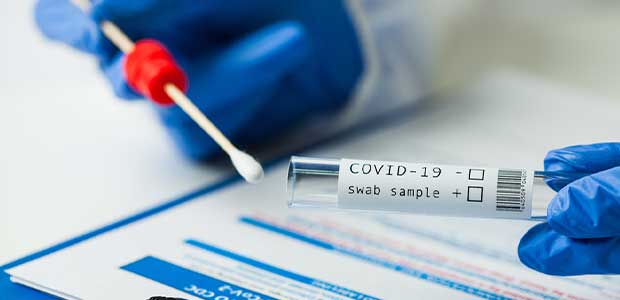
FDA Moves to Streamline COVID-19 Testing
Health experts say it’s important to get tested even if you’re asymptomatic.
- By Shereen Hashem
- Mar 18, 2021
COVID-19 testing is a huge part of the country’s battle against the pandemic. This includes distributing tests to asymptomatic people who may still spread the disease.
The FDA released information that allows COVID-19 test developers to create products that will most likely make it through the FDA’s approval processes. This is used for test developers seeking emergency use authorization (EUA) using serial testing for the workplace. Serial Testing involves testing the same individual multiple times within the timespan of a few days, increasing detection of COVID-19.
The CDC recommends this measure be taken at least once a week as well as other precautions taken, including: wearing masks and social distancing.
“We believe this effort will pave the way for further expanding the availability of tests authorized for screening asymptomatic individuals, help bolster existing and new testing programs and increase consumer access to testing,” an FDA spokesperson said.
The FDA is helping workplaces better choose the tests they use to ensure employees do not have COVID-19 by releasing a fact sheet that outlines considerations for selecting a test.
Workplaces looking to establish testing programs to screen asymptomatic individuals without known or suspected exposure are using various options, including:
- Using a test authorized for screening.
- Health care providers on behalf of the program ordering an authorized diagnostic test for screening.
According to the FDA fact sheet, "When using a test that is not specifically authorized for screening, it is particularly important to understand what you know and don't know about the test's performance and combine it with other strategies," The FDA urges workplaces to consider the following:
- Consider using a highly sensitive authorized test, especially if rapid turnaround times are available. If highly sensitive authorized tests are not feasible, or if turnaround times are prolonged, consider using a less sensitive authorized point-of-care test, such as an antigen test.
- Consider using a pooling strategy to conserve testing supplies. Several tests have been authorized for pooling.
- Consider frequent serial testing, such as the repeated use of rapid point-of-care or at-home tests for self-testing at a predetermined testing interval.
- Negative results should be considered as "presumptive negative," and health care providers should consider them in the context of clinical observations, patient history, and epidemiological information. If there is a concern that an individual with a negative antigen, other point-of-care or at-home test result may have COVID-19 (e.g., because of a new outbreak in a congregate setting), consider retesting the individual with a highly sensitive authorized molecular test.
About the Author
Shereen Hashem is the Associate Content Editor for Occupational Health & Safety magazine.